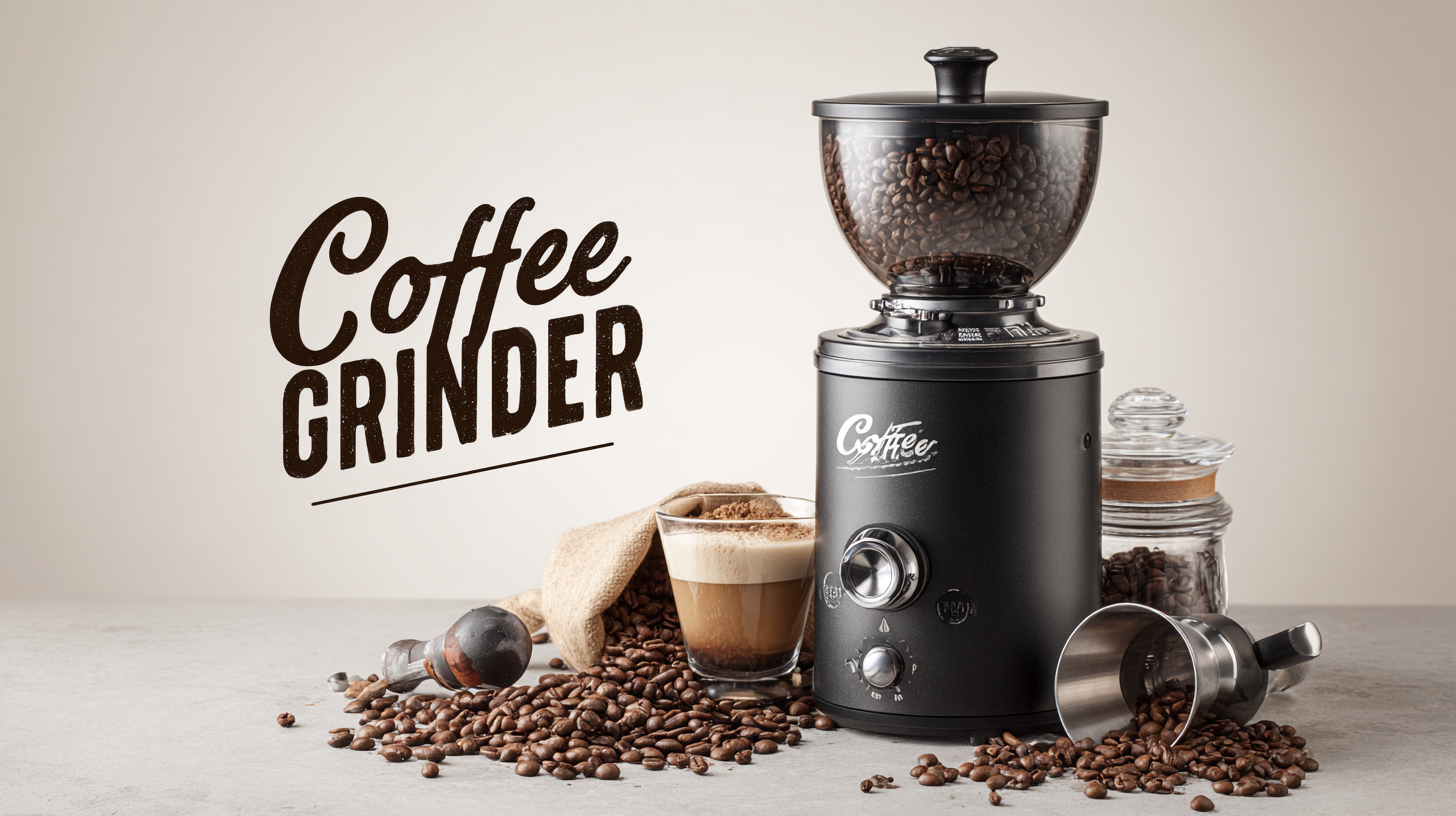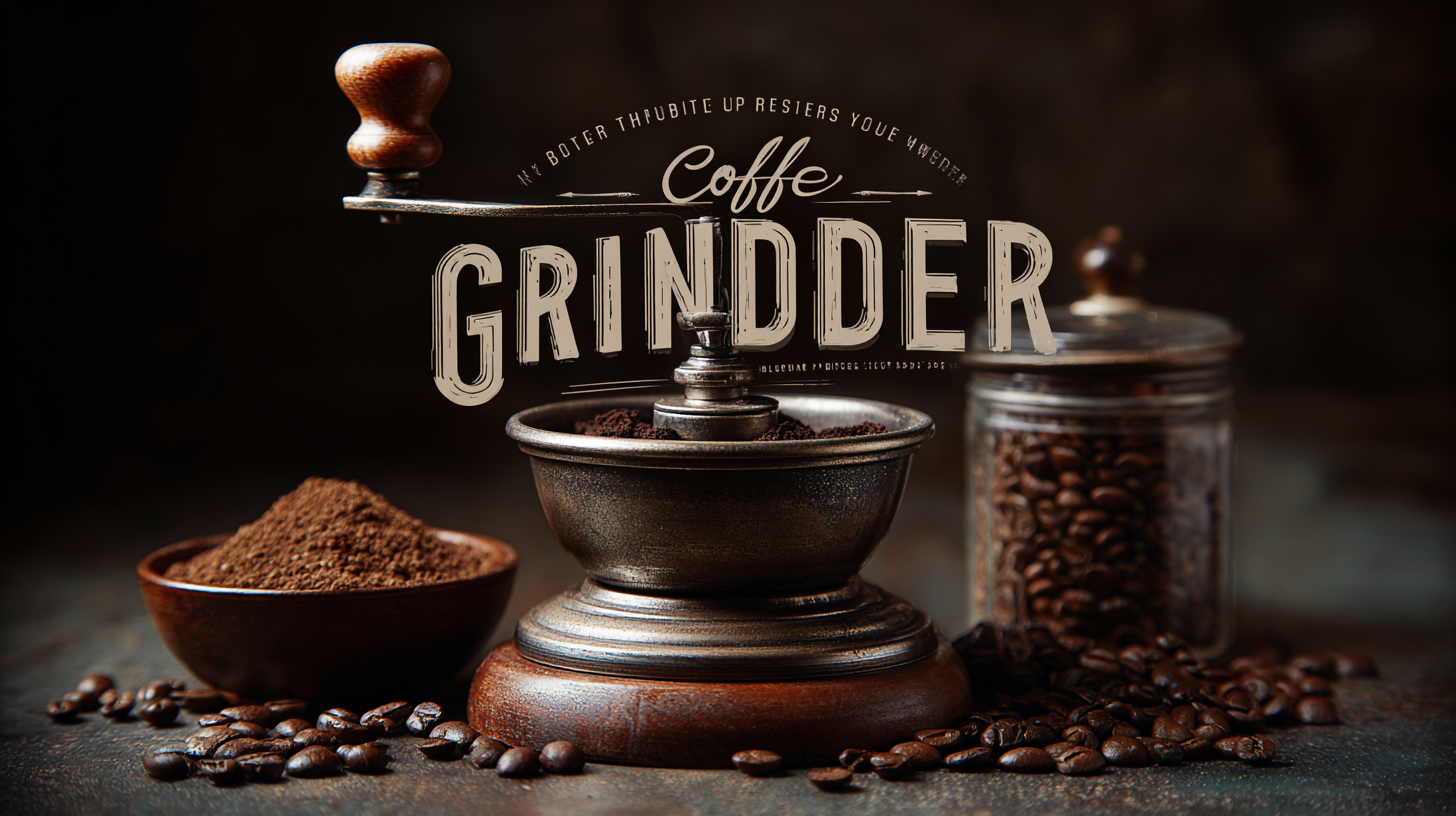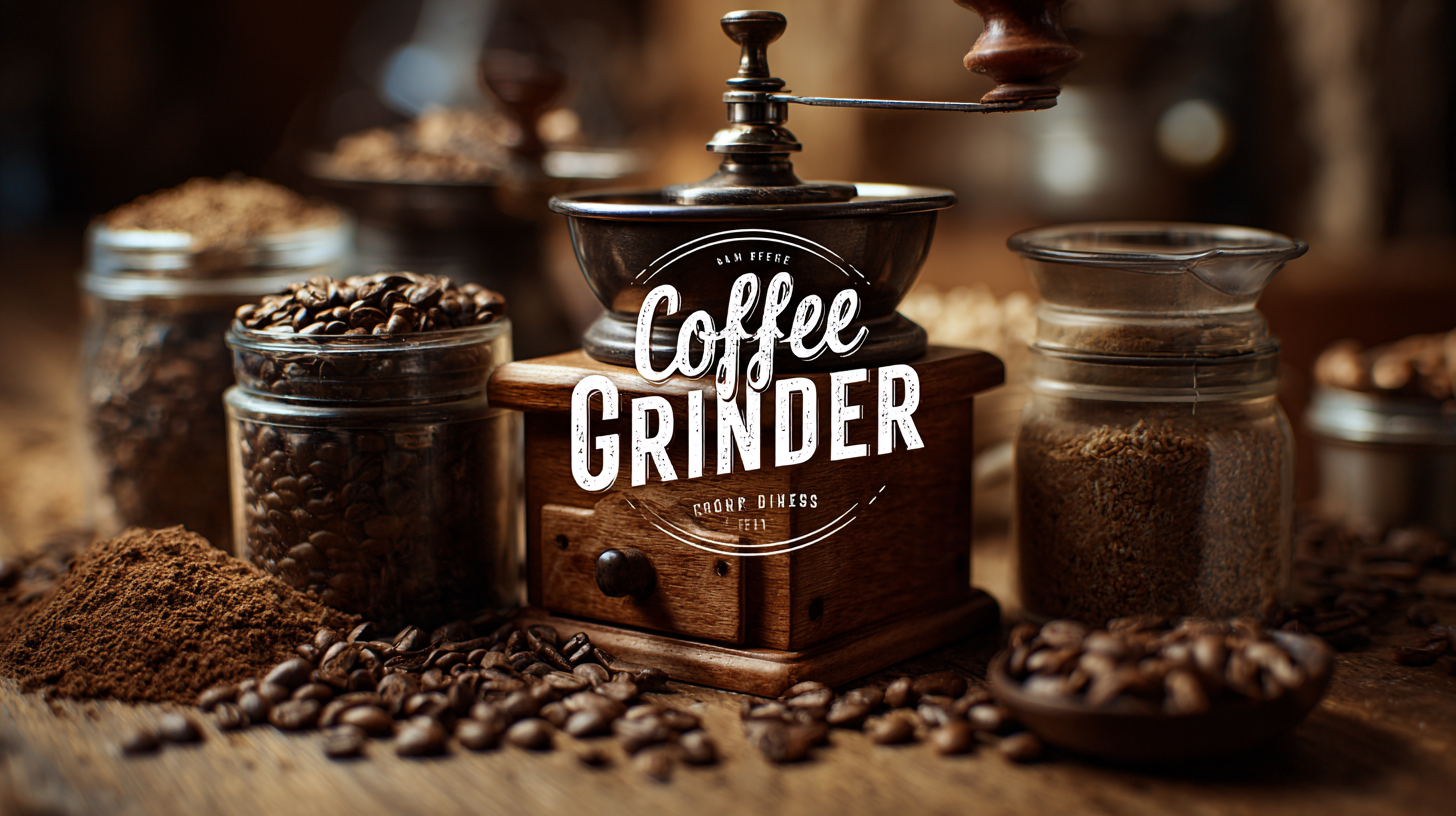Leave Your Message
-
Phone
-
E-mail
-
Whatsapp
-
Whatsapp


Choosing the right coffee grinder for your business is a critical decision that can significantly impact the quality of your coffee offerings and overall customer experience. In this ultimate guide, we will explore the various factors that determine the best coffee grinder for different business needs, whether you're running a small café, a bustling coffee shop, or a large-scale restaurant.

With an array of options available, from blade grinders to high-end burr grinders, it’s essential to understand the unique requirements of your establishment to make an informed choice.
This guide will provide you with the top tips and insights to help you select the perfect coffee grinder that aligns with your operational goals and enhances your coffee service, ensuring that your customers enjoy a consistently exceptional brew every time.
When it comes to selecting the right coffee grinder for your business, understanding the different types available is crucial. There are primarily two categories of coffee grinders: blade grinders and burr grinders. Blade grinders use a rotating blade to chop coffee beans, which often leads to uneven grounds and a lack of consistency in flavor. While they may be budget-friendly, blade grinders are generally not recommended for businesses aiming to serve high-quality coffee.
On the other hand, burr grinders, which use two revolving abrasive surfaces to crush beans, create a uniform grind size, allowing for better extraction and flavor. They come in two main types: flat burr grinders and conical burr grinders. Flat burr grinders provide a consistent particle size but may generate more heat, which can affect the coffee’s flavor. Conical burr grinders are increasingly popular among coffee aficionados as they minimize heat buildup and offer a range of grind settings, making them a versatile choice for various brewing methods. For businesses that prioritize quality and consistency in their coffee offerings, investing in a high-quality burr grinder is essential.

When selecting a coffee grinder for your business, focusing on features that enhance coffee quality and consistency is paramount. According to the Specialty Coffee Association, grind size and uniformity are critical factors that directly impact extraction and flavor. A grinder that offers adjustable settings allows baristas to fine-tune the grind to suit various brewing methods, from espresso to French press. In fact, studies have shown that inconsistent grind size can lead to as much as a 20% variance in flavor profiles, which can jeopardize customer satisfaction.
**Tip:** Consider investing in a grinder equipped with burrs instead of blades. Burr grinders provide a more uniform grind size, ensuring that each coffee particle extracts at the same rate, leading to a balanced and flavorful cup every time.
Another essential feature to evaluate is the grinder’s speed. High-speed grinders generate heat, which can negatively affect the coffee’s flavor. It’s advisable to choose a grinder that operates at a lower speed to maintain the integrity of the coffee beans. Research indicates that maintaining lower temperatures during grinding can preserve volatile compounds, enhancing aroma and taste.
**Tip:** Look for grinders with a “cool grind” feature or those designed specifically for low RPMs to preserve the aromatic qualities of your coffee beans.

When selecting a coffee grinder for your establishment, several key factors must be considered to ensure optimal performance and satisfaction among your customers. First and foremost, the grinder's grind consistency is crucial. According to a report by the Specialty Coffee Association, a uniform grind size is essential for producing the perfect extraction, which directly influences flavor and aroma. Grinders that offer a consistent grind can significantly enhance the quality of brewed coffee, making it imperative to invest in models that leverage advanced burr technology.
Another vital factor is the grinder's capacity and speed. A study from the National Coffee Association indicates that a busy coffee shop can serve upwards of 200 customers daily, highlighting the need for efficient equipment. Grinders with higher output capabilities reduce wait times, accommodating high-footfall periods in your establishment. Additionally, noise levels associated with grinding can affect customer experience, so selecting a grinder known for its quieter operation can create a more pleasant atmosphere. Prioritizing these elements will ensure you choose the right grinder that aligns with the demands of your business while elevating your coffee offerings.
| Grinder Type | Grinding Method | Grind Size Settings | Capacity (grams) | Price Range (USD) | Best For |
|---|---|---|---|---|---|
| Burr Grinder | Motorized | Fine to Coarse | 300 | $100 - $500 | Specialty Coffee Shops |
| Blade Grinder | Motorized | Variable | 100 | $20 - $100 | Cafés with Low Volume |
| Commercial Grinder | Motorized | Multiple Settings | 1,000 | $500 - $2,000 | High Volume Restaurants |
| Manual Grinder | Hand-cranked | Fine to Coarse | 30 | $20 - $80 | Coffee Enthusiasts |
| Espresso Grinder | Motorized | Fine | 250 | $300 - $1,500 | Espresso Bars |
When selecting a coffee grinder for your business, maintenance and durability should be at the forefront of your considerations. A high-quality grinder should withstand the demands of daily use while still delivering consistent results. Look for grinders made with robust materials, such as stainless steel, which can resist wear and tear over time. Regular maintenance is essential; clean the grinder frequently to prevent oil and residue buildup, ensuring optimal performance and longevity.
Tip: Schedule a daily or weekly cleaning routine based on your coffee grind volume. This simple practice can significantly extend the life of your grinder, maintaining its efficiency and taste quality.
Durability also relates to the design of the grinder's components. Gear systems and motor quality play crucial roles in determining how well the grinder will hold up under constant operation. Opt for models that feature heavy-duty motors to handle large quantities of coffee with ease. Additionally, check for warranties or service agreements from manufacturers, as these can provide peace of mind regarding long-term usage.
Tip: Invest in a grinder that offers replaceable parts. This feature allows you to maintain the machine easily without needing a complete replacement, saving your business both time and money.
When it comes to finding the best coffee grinder for your business, balancing budget and performance is crucial. You want a grinder that not only fits within your financial constraints but also enhances your coffee quality and customer satisfaction. To achieve this, it's essential to evaluate your specific needs. Consider the volume of coffee you're serving daily; this will determine the grinder type and features you require.
Tip: Research different grinder models that offer variable settings, enabling you to adjust coarseness depending on the brewing method. This flexibility can significantly improve your coffee offerings without needing to invest in multiple machines.
Furthermore, always take into account the maintenance and durability of the grinder. A well-built grinder can withstand high volumes of use and save you money in the long run.
Tip: Look for grinders with warranties or those designed for commercial use, as they often come with robust construction and reliable performance. Reading reviews from other business owners can also provide valuable insights into which models deliver the best balance between cost and effectiveness.
This chart shows the average cost of different types of coffee grinders suitable for business needs. It illustrates the balance between budget and performance, helping you make an informed decision when selecting the right grinder for your business.
